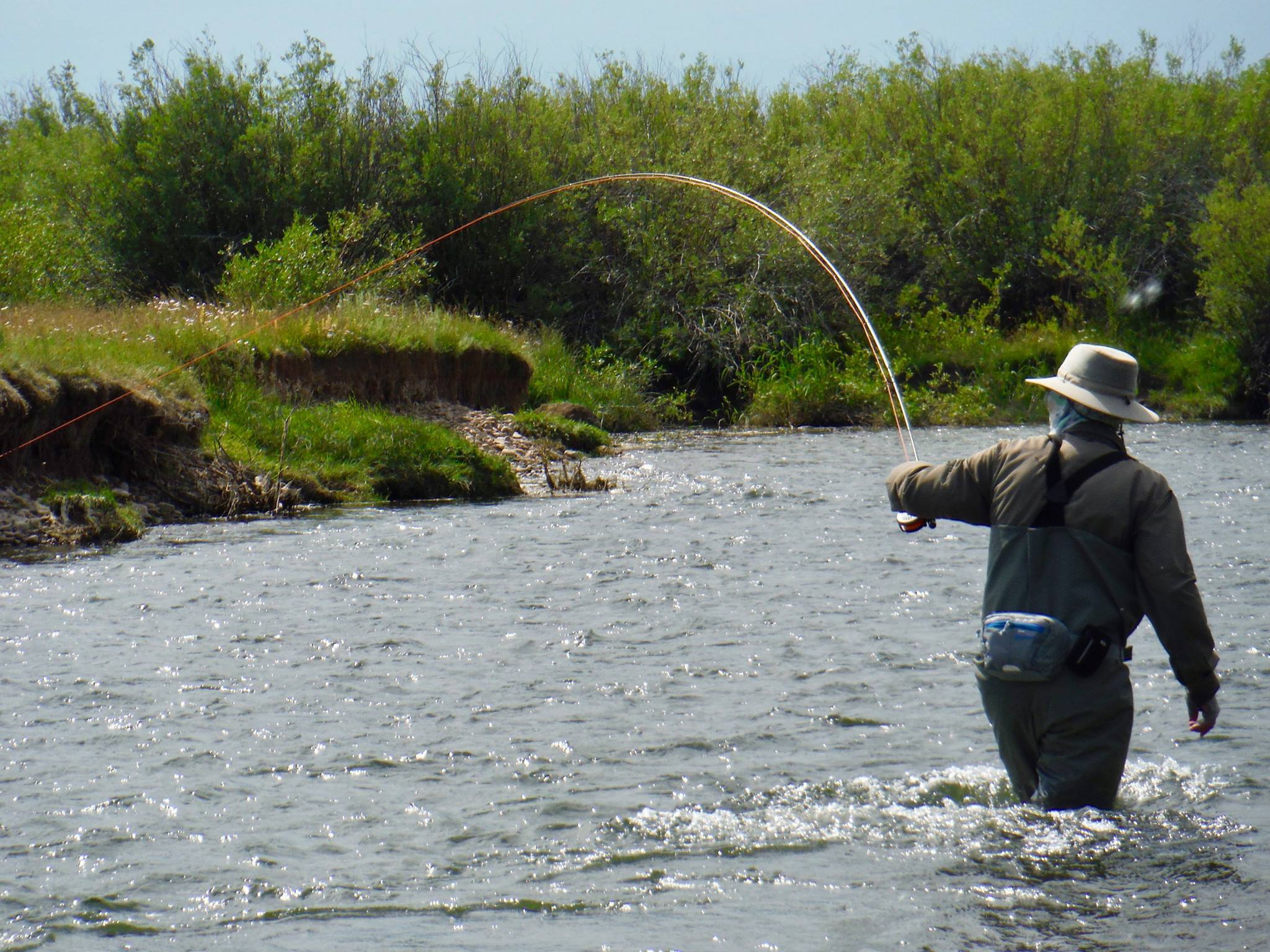Fly fishing has gained an enthusiastic fan-following over the years. Its popularity is not just limited to being a source of recreation or a means of indulging in adventure. Fly fishing is known to offer numerous health benefits that are not only physical but also mental. The sport has a calming effect on our minds and can offer an excellent escape from the stresses of everyday life. Skate The Fly Fishing Tips to reconnect with nature and engage in mindfulness practice that can improve our mental well-being.
Over the years, research has shown that fly fishing can reduce stress, anxiety, and depression. The meditative-like process of casting and patiently waiting to catch a fish, coupled with being surrounded by nature, can help decrease cortisol levels and increase dopamine and serotonin levels in the brain, producing feelings of well-being and relaxation. Additionally, it requires a level of attention to detail, patience and focus to master, making it an excellent tool for developing or honing skills that can transfer to other areas of life.
The benefits
- Fly fishing can be a calming and meditative experience, providing stress relief and relaxation.
Fly fishing can offer many mental health benefits, including stress relief and relaxation. As a slow, deliberate activity, fly fishing can provide a break from the busy and fast-paced nature of modern life. It allows individuals to disconnect from the stressors of daily life and fully immerse themselves in the present moment. The rhythmic casting of the line, the sound of the water, and the beauty of nature can all contribute to a sense of calm and peace. Additionally, the repetitive nature of casting can be meditative, promoting mindfulness and increased awareness of one’s surroundings. The simplicity of the activity can also be therapeutic, providing a sense of accomplishment and satisfaction. Overall, fly fishing can be a valuable tool for managing stress and promoting relaxation for those seeking to improve their mental health and well-being.
- The physical activity involved in fly fishing can promote physical fitness and improve overall health.
Fly fishing involves a significant amount of physical activity, which can promote physical fitness and improve overall health. A typical fly fishing experience involves wading through streams, casting, and reeling in fish, all of which require a combination of strength and endurance. An hour of fly fishing can burn up to 300-500 calories, making it an excellent low-impact workout that can enhance cardiovascular health, strengthen muscles, and improve flexibility. Moreover, being in nature, breathing fresh air, and getting natural sunlight can boost the immune system, which can help reduce stress, anxiety and depression. Overall, fly fishing can be an excellent form of physical activity that not only provides enjoyment but also contributes to maintaining a healthy lifestyle.
- Being in nature can improve mood and decrease symptoms of anxiety and depression.
One of the most significant benefits of fly fishing for mental health and well-being is the opportunity to spend time in nature. Research suggests that being in nature can improve mood and decrease symptoms of anxiety and depression. Spending time outdoors has been linked to lower levels of cortisol, a hormone associated with stress. In addition, it can decrease symptoms of anxiety and depression. Furthermore, spending time in green spaces has been shown to improve cognitive functioning and attention, which can lead to increased creativity, problem-solving abilities, and overall psychological well-being. Fly fishing provides a unique opportunity to combine the benefits of being in nature with the mindfulness and meditative aspects of the sport, making it an ideal activity for promoting mental health and well-being.
- Fly fishing can promote mindfulness, helping individuals stay present in the moment and increase their focus.
Fly fishing is a sport that utilizes mindfulness techniques to promote an increased sense of presence and focus. By its very nature, fly fishing requires concentration and attention to detail, as anglers must consider the movements of the water, the behavior of the fish, and their movements as they cast and retrieve their line. This heightened sense of awareness can help individuals to achieve a state of mindfulness, where they are fully present in the moment and focused on the task at hand. By cultivating this sense of mindfulness, fly fishing can provide a meditative experience that calms the mind and reduces stress, ultimately promoting mental health and well-being. As individuals develop their fly fishing skills, they may find that they are able to apply the lessons learned on the water to other aspects of their lives, further enhancing the benefits of this rewarding pastime.
- The sense of accomplishment and satisfaction from catching fish can improve self-esteem and provide a sense of purpose.
One of the significant benefits of fly fishing for mental health and well-being is the sense of accomplishment and satisfaction that comes from catching fish. The process of fly fishing requires patience, persistence, and focus, which all contribute to the feeling of having achieved a goal. When a fish is finally caught, the excitement and sense of pride can improve self-esteem and provide a significant sense of purpose. This is particularly relevant in situations where individuals may be struggling with low self-esteem or lack of motivation. The self-confidence gained from fishing achievements can translate to other areas of life and positively impact an individual’s overall well-being. Additionally, the mindfulness required during fly fishing can also contribute to stress reduction and a greater sense of calm, promoting mental health and emotional stability.
In conclusion, fly fishing offers numerous benefits for mental health and well-being. It provides an escape from daily stressors, encourages mindfulness, and promotes physical activity. Furthermore, fly fishing has been shown to improve mood, reduce symptoms of anxiety and depression, and increase self-confidence. As we continue to navigate challenging times, considering hobbies such as fly fishing can be a helpful addition to our self-care routines. Spending time in nature, engaging in a leisure activity, and focusing on the present moment can do wonders for our mental health and well-being.

